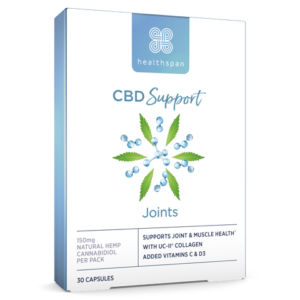Whether you’re suffering from joint pain, disturbed sleep or just feeling down in the dumps, you are not the only one. Healthista speaks to the experts
Whether you’re suffering with joint pain, disturbed sleep or just feeling down in the dumps – rest assured, you’re not the only one.
During this colder, darker time of year, many may notice a shift in their mood and energy levels, as well as an ache in some joints that feels more prominent than in the warmer months.
Indeed, a survey by OnePoll found that one in ten say their joints are sore in the colder weather, and 31 percent admit to having less energy.
one in ten say their joints are sore in the colder weather
What’s more, over half of those surveyed said they also find it harder to wake up in the winter, with 49 per cent sometimes even struggling to get to sleep.
So if you are experiencing disturbed sleep, low mood or sore joints, then look no further than this article for the advice you need. Healthista spoke to the experts who revealed some tips on how to help you get through the winter…
The problem: joint pain
Many joint problems can be symptoms of arthritis. Arthritis can come in many forms which may cause swelling, aching, stiffness or redness around the joints.
If you experience any of these symptoms seeking medical advice is always the best place to start.
‘Joint pain is a common problem and can occur as a result of injury or arthritis. Conditions associated with arthritis can cause joint stiffness and swelling which contribute to the pain felt,’ explains Rob Hobson, Nutritionist and author of The Art of Sleeping.
‘Lifestyle factors, diet and even the weather may play a role in helping to relieve the symptoms of arthritis or can make the pain worse’.
What can help?
Collagen
One of the most effective ways to relieve the pain associated with arthritis is to maintain a healthy body weight to take the strain off the joints. Another way is collagen.
Indeed, research shows that collagen may have a positive effect on different types of joint pain, with one study observing thickened knee cartilage in osteoarthritic patients when supplementing with 10 grams of collagen over a six month period.
Another study reported a decrease in knee pain in athletes taking 10 grams of collagen daily over 24 weeks.
CBD
‘CBD can also help, as this has an analgesic and anti-inflammatory effect on joints, that can help to improve pain and stiffness,’ adds Hobson.
CBD, short for cannabidiol, is a popular natural health and wellness supplements used across the globe for a multitude of reasons.
Extracted from industrial hemp plants, CBD is grown under strictly controlled conditions within the EU to ensure they only trace levels of the psychoactive substance (THC) associated with marijuana.
While CBD does not give you a high like marijuana, it enhances the effects of the brains natural chemicals and receptors to help reduce pain perception, anxiety and stress and aid overall wellbeing.
A combined supplement such a Healthspan’s CBD Support Joints, (60 capsules, £37.95, healthspan.co.uk) includes CBD with type II collagen, vitamin C and vitamin D.
Vitamin C contributes to the normal collagen formation, while vitamin D contributes to the maintenance of normal bones and muscle function.
Exercise
‘Generally speaking, there is no specific exercise that can help support joints,’ explains Valentina Roffi, a Clinical Specialist Physiotherapist working with wellbeing brand Healthspan.
‘Each joint has its own characteristics and demands, and as such may require more specific individualised attention if it is in anyway troublesome.
‘A trained physiotherapist will be able to assess individual needs and formulate a specific exercise programme which will include stretches and strengthening exercises for it.
‘Nevertheless, if we are just looking to improve our general joint health to reduce the risk of aches and pains exercise can help. With regards to the type of exercise, people will find their own preferred form’.
The ideal form of exercise will tick three main boxes for joint health
It is advisable that people choose something that they enjoy doing in order to maintain regularity which is the most important factor when exercising.
The ideal form of exercise will tick three main boxes for joint health including strength training, stretching and aerobic fitness.
Strength training can be done with weights or by using our own body weight for example press ups, step ups, squats or heel raises.
Stretches will maintain the flexibility of our muscles and soft tissue around our joints. Yoga and Pilates can be very good for this when done at the right pace and in the correct form.
Aerobic fitness can be achieved by performing activities that raise our heart rate for a sustained period of time. For example, brisk walking, cycling and swimming will do this whilst also challenging our muscle strength and flexibility and improving our heart health.
Swimming is a very useful exercise in alleviating pressure on painful joints whilst allowing them the move and strengthen in the water.
The problem: tiredness
‘Around 31 to 55 per cent of sleep duration is based on genetics, the remainder, however, is influenced by everyday factors like your behaviour, environment and diet,’ explains Rob Hobson.
What can help?
A bedtime routine
Creating a bedtime ritual and a sleep environment that’s personal to you can help.
‘You can think of sleep hygiene by the way of the acronym BED, which stands for behaviour, environment and diet,’ Hobson reveals.
Behaviour includes switching off all electrical equipment before bed.
Environment is about keeping your bedroom cool, dark, and free of clutter.
Diet is about avoiding foods and drinks that keep you awake.
‘We can develop a good pattern to wind- down and relax before going to bed, which will lull us into a sound sleep,’ says Dr Meg Arroll, a chartered psychologist working with Healthspan
‘First of all, find personal meaning in sleep. Sleep is necessary for survival, but it can also be a form of self-care and nurture. Therefore, to gain the benefits of a ritual, reflect and see what sleep means to you.
Create a routine that is comforting and relaxing pre bedtime
‘Next, to create a good sleep pattern set yourself sleep and wake times, bearing in mind adults need a good seven to nine hours’ sleep. So, if you need to wake up at 7am, then midnight should be the latest you go to bed.
‘Then, 60 to 90 minutes before your bedtime start to engage in activities that are part of your wind-down. Set an alarm if you need to at the beginning of this habit change to remind you to start your bedtime routine.
‘Create a routine that is comforting and relaxing pre bedtime which is personal to you and not stimulating. Remember this may take time to develop a new ritual so be patient with yourself and give it some space to cultivate’.
Tryptophan rich foods
‘Choosing foods rich in tryptophan (beans, pulses, oats, poultry) may also help, as this amino acid is involved in the production of melatonin (the sleep hormone). Combine these foods with carbohydrates (rice, pasta, potatoes) to increase the uptake of tryptophan,’ adds Hobson
Lumie Bodyclock
An alarm clock such as Lumie Bodyclock Spark 100, (£79, lumie.com) can be helpful, as it gradually wakes you with a sunrise effect over the duration of 30 minutes before the alarm noise activates at your set time. It also has a sunset feature to promote your body’s natural sleep response. Dr Sarah says,
CBD
‘Cannabidiol (CBD) is also a popular treatment for insomnia and promotes refreshing REM sleep to reduce excessive daytime sleepiness,’ Dr Sarah Brewer, Healthspan Medical Director.
‘REM sleep means ‘Rapid Eye Movement’ and is essentially the term for when we enter into a deep phase of sleep – when you dream you experience REM sleep’.
Try Healthspan’s CBD Support Night Time, (60 capsules, £37.95, healthspan.co.uk) containing CBD with natural herbal extracts of chamomile, lemon balm and hops that are traditionally used for their relaxing properties.
The problem: low mood
Low mood is an increasingly common problem caused by any number of issues such as stress at work, lack of sleep, Seasonal Affective Disorder (SAD), depression and anxiety.
Regular exercise and a healthy diet have been known to drastically improve low mood and should always be your first point of call but there are alternatives that could contribute to improving mood, too.
What can help?
CBD
‘CBD helps to reduce muscle tension, restlessness and fatigue which can contribute to inactivity which can contribute to low mood and it can also help reduce the whirling thoughts and interfere with sleep,’ reveals Dr Brewer.
A study involving people with social anxiety found that taking CBD supplements before a public speaking engagement reduced anxiety, muddled thoughts, social discomfort and anticipatory anxiety significantly more than placebo. CBD may also help with the anxiety that can occur when stopping smoking.
CBD may also help with the anxiety that can occur when stopping smoking
Healthspan’s CBD Support Mellow (60 capsules, £37.95, healthspan.co.uk) combined CBD with a full complex of B vitamins, plus vitamin C, magnesium and zinc, designed to support psychological and cognitive function, as well as mental performance.
Vitamins
‘From mindfulness to minerals there are many ways we can support our mood during the winter months and simple dietary changes making sure we have enough B vitamins and vitamin D in our diet,’ says Dr Brewer.
‘I especially recommend the magic of magnesium which is essential for energy metabolism, reducing tiredness and fatigue and is also vital for normal functioning of the nervous system and psychological health.
‘In addition, it is involved in the production of melatonin which is the hormone that controls our sleep cycle.
‘Magnesium can also be absorbed through the skin so my favourite right now is adding Magnesium Bath Flakes to a relaxing bath with a few drops of Tisserand Geranium Essential Oil, (9ml, £10.00 www.tisserand.com) to relax’.
More Healthista Content:
12 ways to tackle stress and anxiety
5 ways to ease anxiety during menopause
Stress symptoms? 7 instant fixes you can do at your desk
Hair guru reveals 5 rules for healthy, shiny hair
Like this article? Sign up to our newsletter to get more articles like this delivered straight to your inbox.


























































